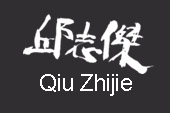Mirror CalligraphyPavilion: Know Thyself
Tianjin Italian Style Town • Zhongshuge Bookstore
The Mirror Calligraphy Pavilion resides atop Zhongshuge Bookstore—where books fill the floors below, while calligraphy crowns the roof.
In ancient times, both bells and mirrors were cast from bronze and served as reminders. Bells marked the hours through sound, alerting us to time's passage. Mirrors allowed us to adjust our attire, see our true form, and thus face the world. They offered vision, awakening us to the presence of space: How do we appear in the eyes of the world?"
Time and space are connected through the dual nature of shu : both books (shu ji) and calligraphy (shu fa) convey knowledge, discourse, thought, and emotion. Both are perceived by the eyes, but truly embraced by the heart.
Walls lined with books and calligraphy, sunlight gliding and dancing across mirror surfaces, bell tones echoing from afar. Standing atop the ZhongshugeBookstore, one gazes upon layered skylines: nearby—colonial villas and buildings; further—towering modern high-rises; beyond—the winding Haihe River . Layers of architecture ripple outward, forming a powerful aura, like tree rings or an unfolded archaeological site—both a convergence of space and an unfolding of time.
The calligraphy in the Mirror Calligraphy Pavilion is written in “ mirror script ” —characters flipped horizontally, legible only when reflected in a mirror. Hence, the space is filled with mirrors. If your mind can invert these glyphs, they transform into readable poetry; if not yet, the ubiquitous mirrors offer their aid.
In the Mirror Calligraphy Pavilion, images overlap and permeate one another, observing each other and measuring each other as boundaries dissolve. At the moment of inversion—between inner and outer, right and reverse, forward and backward—the connection between our inner self and external evidence relies on memory. This is a space where order collapses and reorganizes, where we reunite with ourselves. Every encounter is a reunion after a long separation; this is our rendezvous with a brand-new self.
Thus, the texts in the Mirror Calligraphy Pavilion speak partly of mirrors themselves, and partly of qi —for qi is the inner spirit that permeates darkness and light, the obscured and the manifest. As Wang Yangming said: “ Before you gazed upon this flower, it and your mind alike dwelt in silence; when you came to behold this flower, its colors bloomed vividly before you—thus we know this flower exists not beyond your mind. ”
Before you arrive at the Mirror Calligraphy Pavilion: this place and your mind alike dwelt in silence; when you arrived, the entire atmosphere transformed in that moment—thus we know this Pavilion exists not beyond your mind.
|
